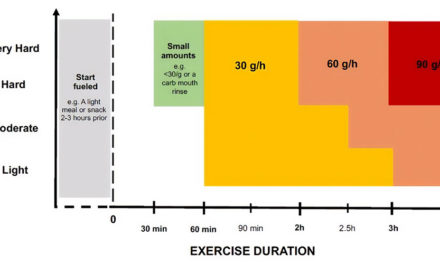Cancer of the colon is a serious but easily detected malignancy. It is the second-leading cause of cancer deaths in the country and killed 50,000 people this past year. Early detection promises a high chance of survival. When detected early, 90% of patients can be cured. Colonoscopy screenings have decreased colon cancer deaths by over 50%.
Cancer that begins in either the colon or rectum is called Colorectal Cancer (CRC). It begins in the tissues that line the colon (the large intestine) as small growths called adenomatous polyps. Over 7–10 years, these small growths become cancerous. The majority (90%) of cases occur after age 50.
There is strong evidence of abnormal genes for colon polyps (abnormal growths) that can be passed from parent to child. When the controlling genes are absent, there is a tendency to grow polyps, which in turn can become cancerous. A colonoscopy can find precancerous polyps so they can be removed before they turn into cancer. At least 75% of colorectal cancer can be avoided through early detection and removal of pre-cancerous polyps. Unfortunately, fewer than 60% of people over the age of 50 get their recommended colonoscopy.
Does screening really reduce cancer mortality and why?
Yes. Colorectal cancer screening can detect early-stage cancer, leading to the removal of premalignant polyps. This reduces both cancer incidence and mortality by 90%. There are other types of screening tests that are less effective, but the best test for a patient is the one he or she is willing to undergo. These include tests to detect blood or abnormal DNA in the stool, a virtual colonoscopy via CT scan, or a flexible sigmoidoscopy combined with stool blood testing.
Why do you recommend colonoscopy as the preferred cancer screening exam?
The American College of Gastroenterology considers colonoscopy the “gold standard” for colorectal screening because it allows physicians to look directly at the entire colon and to identify suspicious growths. It is the only test that allows for immediate biopsy and removal of a polyp at the same time it is identified. For persons at average risk of colon cancer, a colonoscopy only needs to be performed once every 10 years. If polyps are found, then a colonoscopy should be repeated every five years.
Who is at risk for colorectal cancer?
The risk of developing colorectal cancer increases with age. Men and women ages 50 and older are at an increased risk for developing colorectal cancer and should be screened every 10 years. Some people are at a higher risk and should be screened at an age younger than 50. These include those with a personal or family history of colorectal cancer or polyps; people with Crohn’s disease or Ulcerative colitis; and those with a strong family history of breast, ovarian, or endometrial cancers. However, only 20% of colorectal cancer patients report a family history with these risk factors. Most colon cancers occur out of the blue for unknown reasons. Some factors that can increase risk include obesity, smoking, heavy alcohol use, a high-fat diet, and a sedentary lifestyle.
What are the Symptoms?
Most colorectal cancers produce no symptoms until late in the disease, which is why screening is so important. Symptoms that should prompt a visit with your physician include: new onset of abdominal pain, blood in or on the stool, a change in stool caliber or shape, or a change in typical bowel habits (constipation or diarrhea).
How can I lower my risk?
To lower your risk of colorectal cancer, the American Society of Gastrointestinal Endoscopy recommends that you:
- Get regular colorectal cancer screenings beginning at age 50
- Eat a low-fat, high-fiber diet with lots of fresh fruits and vegetables
- Limit your consumption of red and processed meats
- Drink alcohol in moderation
- Quit tobacco (Alcohol and tobacco in combination are linked to increased risk of colorectal cancer.)
- Exercise at least 20 minutes three to four times each week and maintain a healthy weight.
If you were born before 1969, prioritize your colonoscopy screening!
Dr. Paul Bierman, who is nationally recognized and Board Certified, has been practicing gastroenterology for over 20 years. GI Specialists Foundation, Inc. / ColonScreening.com / (901) 201-6200







